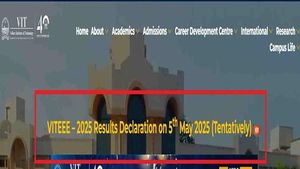On March 24, 2025, the province of Chiang Mai declared disaster areas in response to the dire impacts of forest fires that have caused widespread concern. Governor Nirat Phongsitthithaworn announced that five subdistricts across the Chiang Dao and Omkoi districts were severely affected by these fires, necessitating immediate assistance and intervention. This proactive measure aims to protect residents, enhance safety and expedite action against ongoing threats from the blazes.
The governor emphasized the urgent need for enhanced fire prevention measures, particularly in the most affected areas such as Tha Haar. "We must prioritize prevention and suppression efforts to mitigate further damage," he urged. As of March 24, officials identified 28 hotspots related to the fires, underscoring the alarming situation. The fires have not only threatened property but also severely compromised air quality, with PM2.5 levels exceeding standard limits, impacting health and daily life for many locals.
According to the web-based air quality monitoring site IQAIR, at 10:49 AM, Chiang Mai recorded an air quality index (AQI) of 180, ranking fifth worst globally. This deterioration reached other major cities in Thailand, with Bangkok's AQI reaching 164, sitting at eighth globally. Health experts note that such increases in pollution levels present significant health hazards.
In addition to the governor's declaration, the Ratchaburi province also responded to natural disasters recently, with efforts focusing on the needs of residents affected by a separate fire incident that occurred on February 19, 2025, at the home of Mr. Madari Yuso in Tambon Batong. On the same day as the governor’s announcement, Ratchaburi’s Governor Tragoon Tothram led a foundation effort to extend aid from the Rajaprajanugroh Foundation, allocating a budget of 49,500 baht for property repairs and additional help packaged for about 10,000 baht to the affected family.
This response highlighted the collaborative efforts from various organizations including local disaster management agencies. These agencies mobilized promptly for the urgent repairs and supplies needed to assist the afflicted families and community members. The funds also comprised 2,000 baht from the local administrative organization and 3,000 baht from the provincial social development office to alleviate the immediate needs of the residents.
The focus on humanitarian support in Ratchaburi is echoed in Chiang Mai, where officials are taking measures to engage military personnel, local administrative bodies, and environmental groups to address the complexities of the forest fires. The director of conservation area 16 (Chiang Mai), Krit Saisayam, noted that “it is imperative to intensify monitoring and control measures against fire outbreaks,” especially as predictions from the Northern Meteorological Center indicate stagnant air patterns leading to increased pollution.
This situation has necessitated immediate intervention, with a total of 342 hotspots reported earlier in the month leading down to an average daily pollution level in the northern provinces that remains alarming. Authorities are collaborating to finalize prevention plans while also responding to community health concerns brought on by the ongoing air quality crisis.
Efforts across both provinces aim not only to provide relief but also to bolster long-term strategies against the recurrent issue of forest fires. Environmental agencies are mobilizing additional resources including aircraft designed to modify weather patterns to improve air quality, particularly in the areas most affected by pollution.
The collective collaboration between various departments illustrates the critical importance of a unified response in the face of such natural disasters. In the face of increasing challenges posed by environmental factors, rapid and coordinated agency efforts are crucial to restoring health and safety in affected communities.
The situation has tested the resilience of local authorities as they navigate resource allocation and logistical challenges while prioritizing the health of their communities. Moving forward, Chiang Mai and Ratchaburi are set to strengthen measures to tackle both immediate needs and preventive frameworks to secure public health and environmental safety.
Residents and local officials alike are hopeful that through these collaborative efforts, the adverse impacts of the burning flames and pollution will be mitigated, setting a foundation for community restoration and better preparedness for future environmental challenges. The path ahead integrates immediate disaster responses with strategic preventative measures aimed at achieving sustainability and resilience.






